1980 marked the dawn of a transformative and turbulent decade for Washington, DC. Mayor Marion Barry’s administration highlighted the promise of home-rule, working to balance the budget and fast-track downtown construction.1, 2 Barry took office in 1979 and, by 1980, his new administration remained widely popular and optimism grew. On the national level, 1980 saw Ronald Reagan soundly defeat the incumbent Jimmy Carter in the election for President of the United State. The Reagan administration’s social and economic policies would have a profound effect on the DC area in the years ahead. Reagan quickly served as a primary foil for the larger punk subculture, with DC punk protesting against the administration throughout the decade via music, visual art, and activism.
1980 was also a year of transition within the DC punk scene. Some first wave punks in the community bemoaned a sense of stagnation following the rapid musical development of the late 1970s. Fanzine editor Xyra Harper summed this up in the first issue of Capitol Crisis, which appeared in November: “Well, here we are in this nation’s capitol, trying to write about what’s been coined ‘The New Wave’ since 1976……But have things really changed in the U.S. since The Sex Pistols????”3
The first wave of DC punk and new wave bands had mostly ebbed out with the breakup of the Razz and the commercial failure of Urban Verbs’ self-titled debut album for Warner Brothers Records. A review of Urban Verbs in the May 29 issue of the highly influential Rolling Stone magazine was so harsh—and oddly personal—in its attacks that it was routinely credited with almost single-handedly ending the band’s career. Reviewer Tom Carson refers to Urban Verbs singer Roddy Frantz as “a pompous shithead” and “the very worst kind of art rock poseur” who “seems to have absorbed all of [Talking Heads vocalist/guitarist] David Byrne's arrogance and none of his talent” while singing in “the voice of a megalomanic [sic] teddy bear.”4 Urban Verbs keyboardist Robin Rose joked about the stunning review in 1985 when the Washington City Paper ran a retrospective piece on the band: “I felt like John Kennedy looking for the grassy knoll.”5
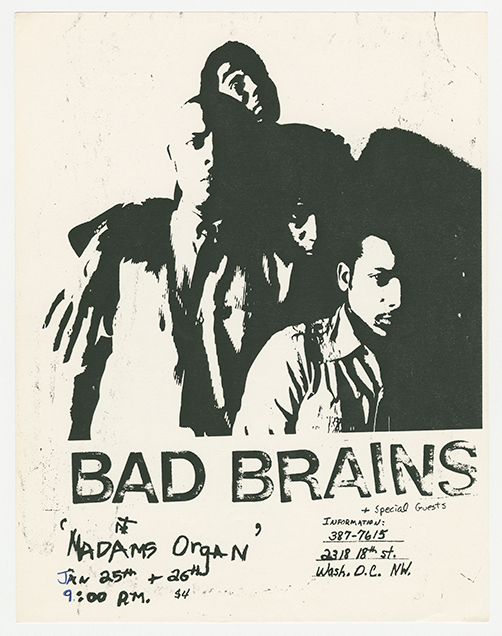
...
Meanwhile, the Slickee Boys soldiered on, releasing a new single on guitarist Kim Kane’s record label Dacoit in 1980 while still looking for a larger label to call home. Insect Surfers, another first wave band in the Slickee Boys mold—albeit one leaning harder into a surf rock aesthetic thanks to the guitar excellence of David Arnson—released their defining effort Wavelength in 1980. The EP was issued by Wasp Records, a new label run by Bill Asp, owner of Record and Tape Exchange record store in Arlington, Virginia, just across the Potomac River from DC. Asp was an evangelist for local music, publishing a monthly fanzine/tip sheet in 1980 called Washington Waves. Wasp also released the debut single, "Washingtron," from Tru Fax & the Insaniacs, a spirited, somewhat angular new wave band led by guitarist/vocalist Diana Quinn. Described by Descenes fanzine as “a garage band for intellectuals,” Tru Fax was a central presence on the scene that year.6
Tiny Desk Unit was another standout band from the scene’s first wave, more in line with the cerebral new wave rock of Urban Verbs than with punk’s more feral participants. The band released their self-titled debut EP in 1980 on their own label, 9 1/2 x 16” Records, but it was another debut of theirs that year that had the most lasting impact. Occupying the space at 930 F Street NW formerly used by the Atlantis, Dody DiSanto and Jon Bowers opened a new venue—the 9:30 Club—on May 31, 1980. Tiny Desk Unit opened the concert for the New York jazz/no wave group Lounge Lizards, becoming the first band to perform at the club. DiSanto recalled that the show “was amazing, packed, sold out, awesome. It was instantly a scene.”7 The 9:30 Club remains in business today—moving to 815 V Street NW in 1996—and continues to be a hub for adventurous, alternative music.
Bridging the gap between the first wave of punks and the new, harder edged, second wave of punks that appeared in 1979, Black Market Baby was a new band from former D. Ceats guitarist Keith Campbell, Penetrators drummer Tommy Carr, and two former members of Snitch, vocalist Boyd Farrell and bassist Paul Cleary. Their debut in 1980 demonstrated that few other DC bands were as effective at blending punk’s menacing mien with humor and memorable songwriting. While lacking the speedy tempos of the newer hardcore bands, Black Market Baby’s music and aggressive performance style was just as powerful as their younger peers in the scene. Their debut single, “Potential Suicide,” was produced by Skip Groff and released on his label, Limp Records, the following year.
The second wave of DC punk bands that emerged in 1979 began to dominate the scene in 1980, playing a much harder and faster version of punk than their predecessors did. Bad Brains released their debut single, "Pay to Cum," on their own Bad Brain Records, significantly pioneering the sound of hardcore that dominated the punk scene in the coming years. The group was banned from numerous local venues, however, due to their chaotic concerts and would soon move their home base to New York City. Regardless, the quartet that penned “Banned in DC” as a response to the District clubs that shunned them, would forever remain synonymous with the city they emerged from.8
The Teen Idles—along with fellow teenage hardcore punk band the Untouchables—appeared on the scene toward the end of 1979 but truly made their mark in 1980. The group performed around DC frequently in the first half of the year, establishing themselves and their young group of friends as the vanguard of DC punk. While first wave bands like the Slickee Boys and Nurses were some of the Teen Idles most ardent supporters, other older members of the community were skeptical of the Teen Idles, dismissing the band as “teeny punks” and mocking their frequent congregation in DC’s tony Georgetown neighborhood. As an incredulous Xyra Harper exclaimed in Capitol Crisis, “the last place in the world you’d ever expect apparent rebellious youth to identify with would be the posh shopping district of Georgetown!”9 The young punks embraced the insult, chanting the tag at concerts to proudly proclaim their presence. “[W]e took Wite-Out and we put the letter “G” on the back of our boots and we wrote a G on our jackets,” Teen Idles bassist Ian MacKaye recalled. “[W]e're like, ‘Yeah, we're fuckin’ Georgetown punks.’”10
Fueled by these slights from within their own community, the Teen Idles gained momentum through the year. A brief tour of California in August had a transformative effect on the band. Equally shocked and inspired by the violent dancing and fearsome style of the California punks—particularly a group of them from Huntington Beach known as the HB’s—the Teen Idles brought an even harder and more pugilistic edge to their sound, style, and performance when they resumed shows in DC that fall. Whereas dancing at DC punk shows previously consisted of more inclusive dances like pogoing, the often-brutal slam dancing that grew in popularity by the end of 1980 pushed many concert attendees to the margins of the room.
The Teen Idles disbanded following a concert at the 9:30 Club on November 6, but MacKaye and Nelson, with some initial guidance from Skip Groff, launched a new record label to release the band’s posthumous EP, Minor Disturbance. Dischord Records would quickly become the flagship label for the local punk scene and continues to operate today, having firmly established D.C. as one of punk’s most influential communities. An equally momentous debut occurred the same month when Minor Threat, MacKaye and Nelson’s new band with Lyle Preslar and Brian Baker, played their first show in December 1980. Joined by other new, young hardcore bands like Government Issue and State of Alert (S.O.A.), Minor Threat would completely reshape the D.C. and broader national punk scenes in 1981.
Further Listening
Bad Brains. "Pay to Cum." Bad Brain Records, 7-inch single.
Insect Surfers. Wavelength. Wasp Records, EP.
Nurses. "Running Around." Limp Records, 7-inch single.
Slickee Boys. "The Brain That Refused to Die." Dacoit Records, 7-inch single.
Teen Idles. Minor Disturbance. Dischord Records, 7-inch EP.
Tiny Desk Unit. Tiny Desk Unit. 9 ½ x 16” Records, LP.
Urban Verbs. Urban Verbs. Warner Bros. Records, Album.
Various. The Best of Limp (...The Rest of Limp). Limp Records, Album.
Materials are drawn from the Sharon Cheslow punk fliers collection, the Skip Groff papers, and the Robbie White collection on the Slickee Boys.
Tap or hover over an image to learn more.
FLIERS
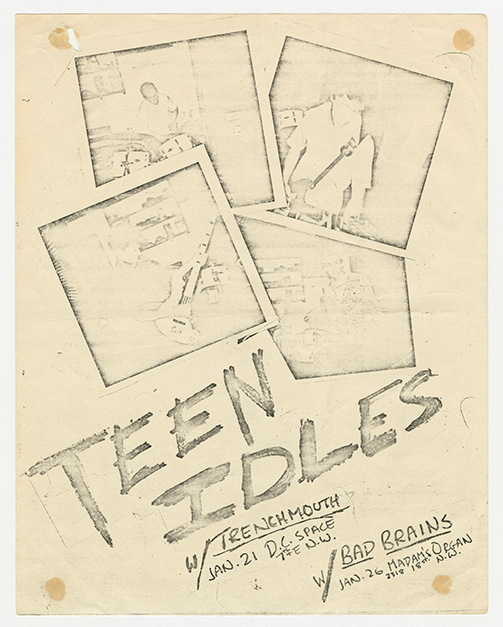

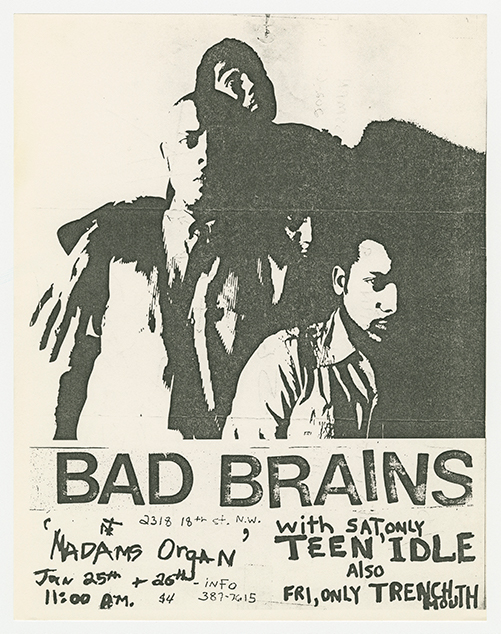
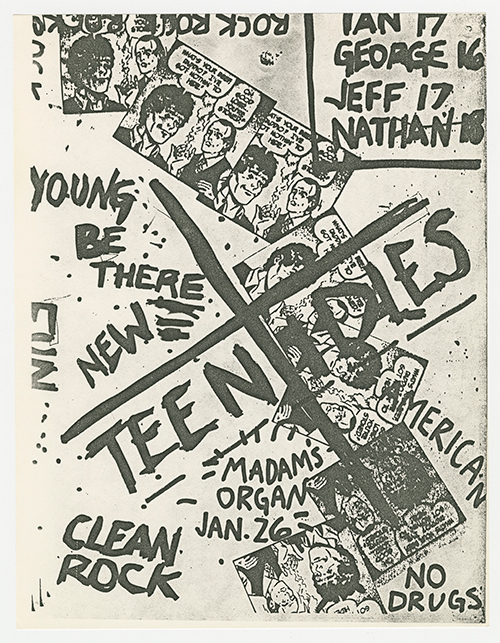
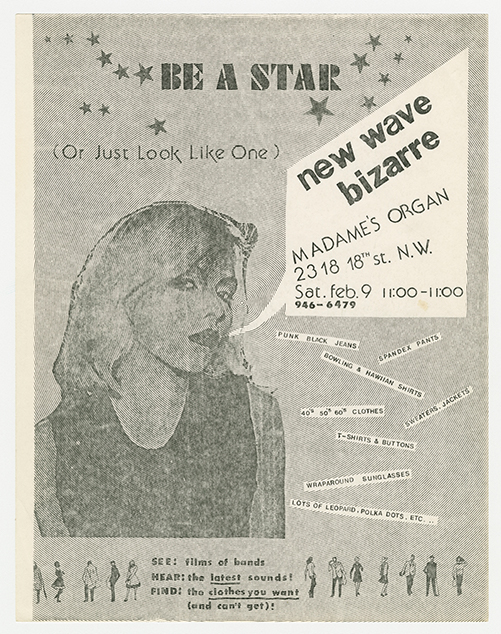
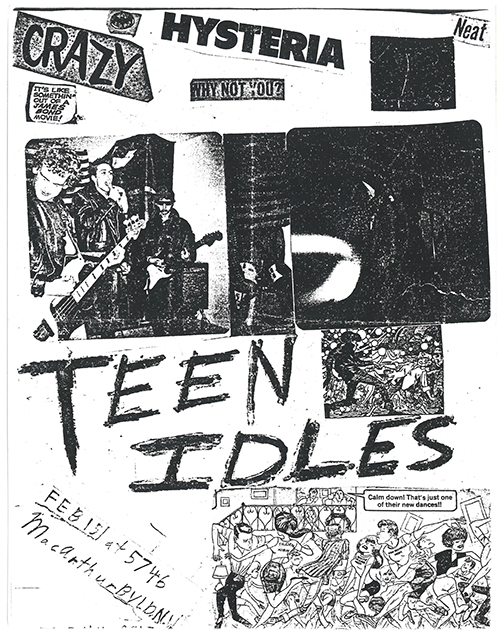
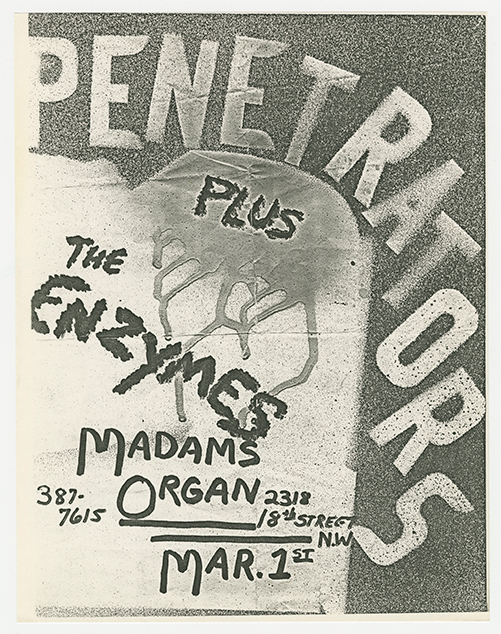
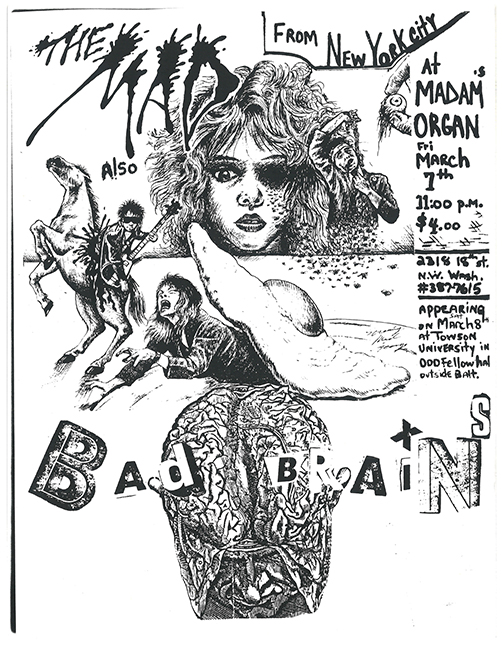
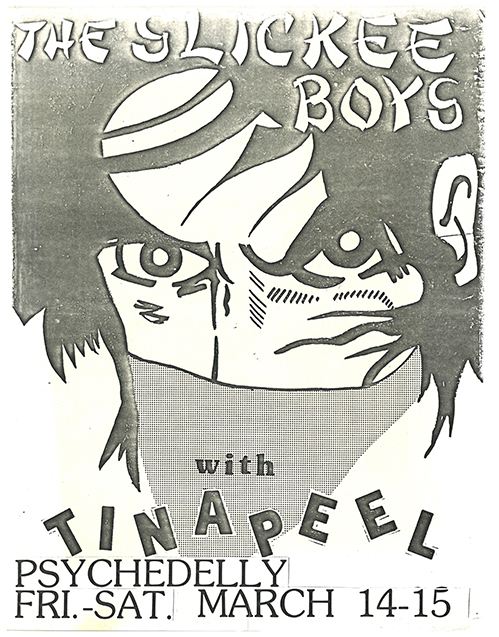
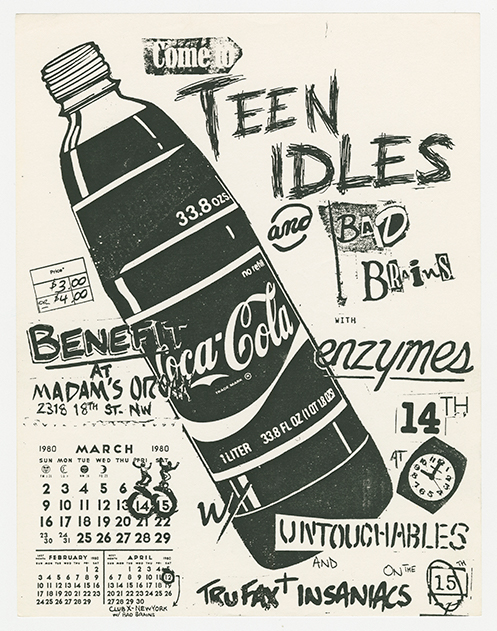
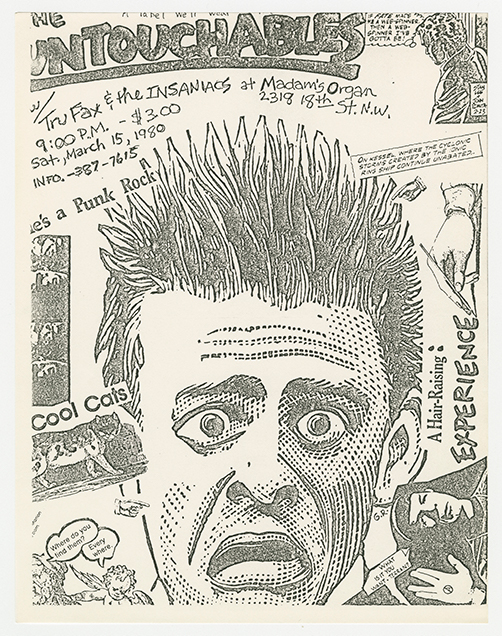
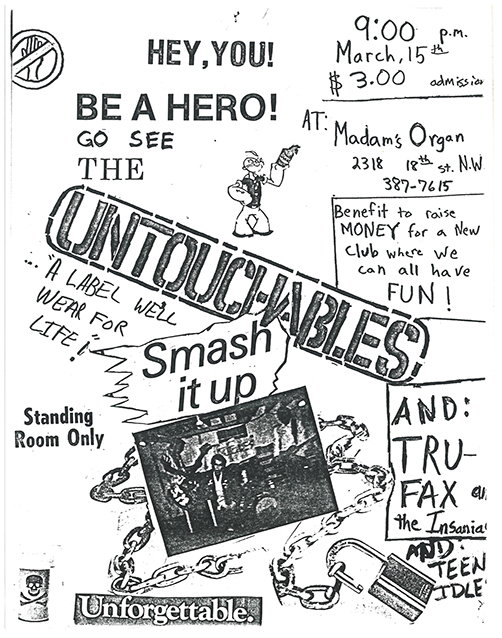
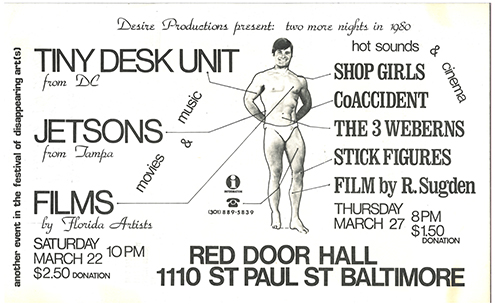
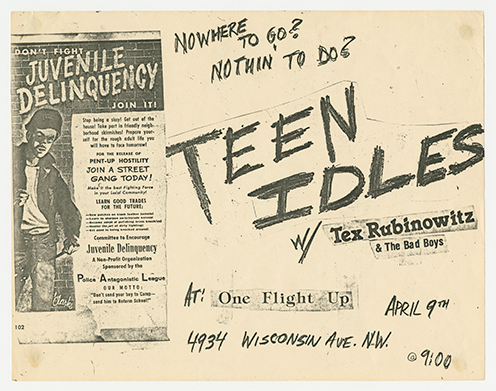
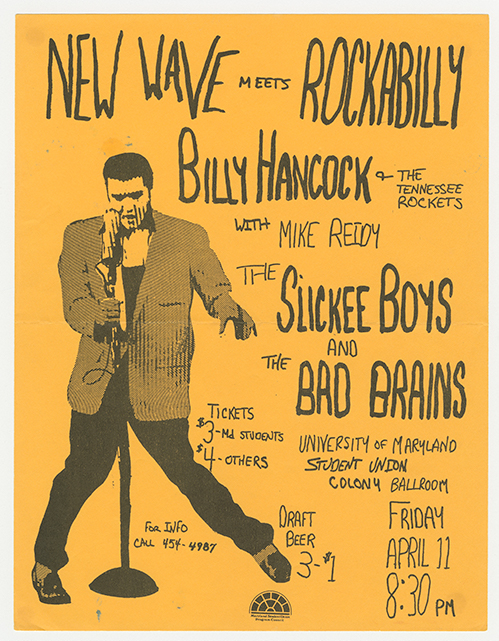
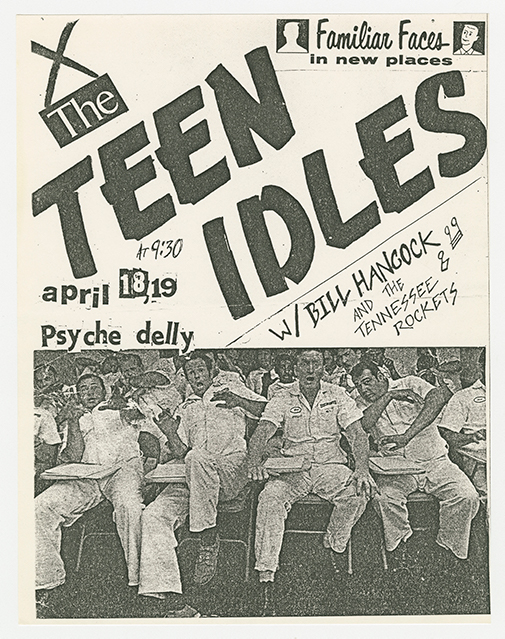
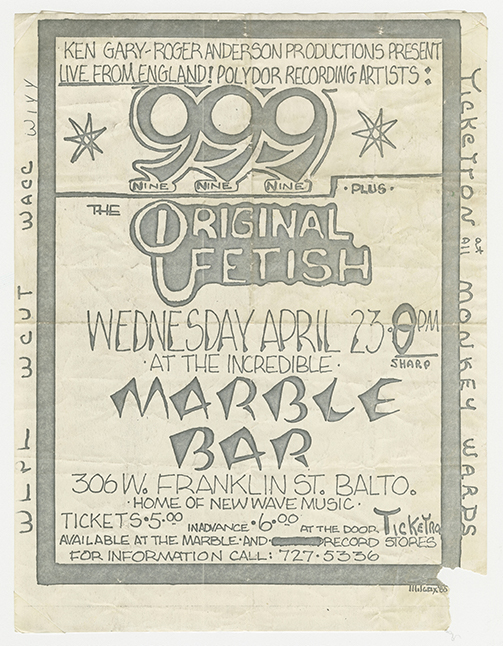
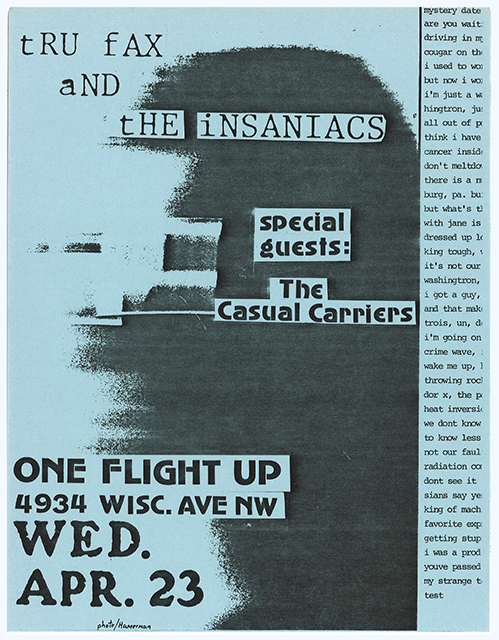
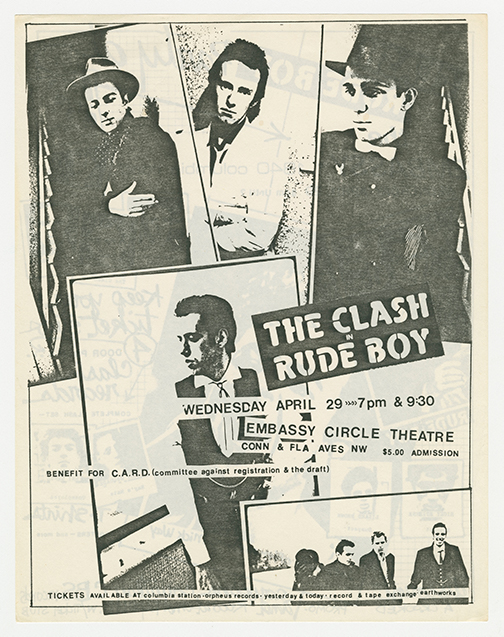
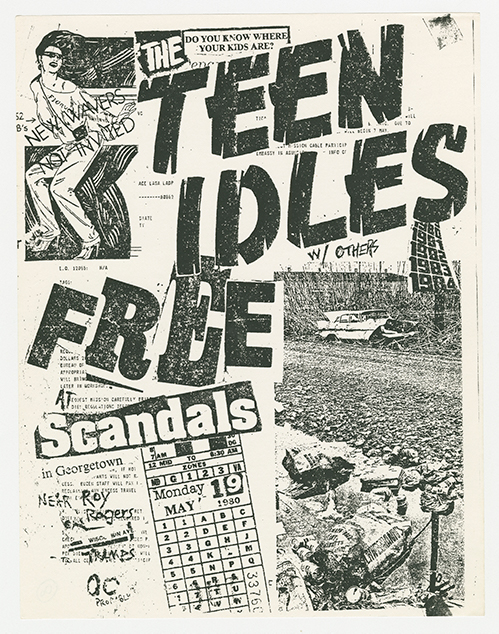
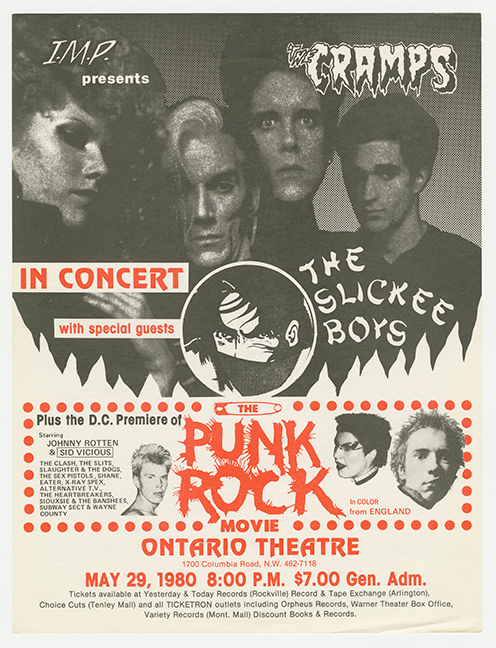
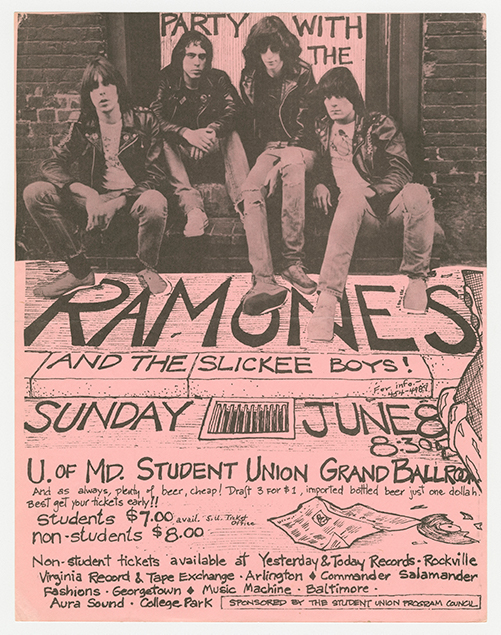
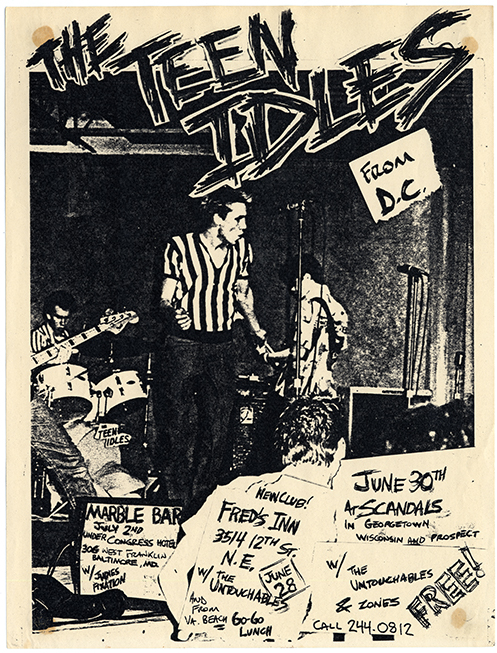
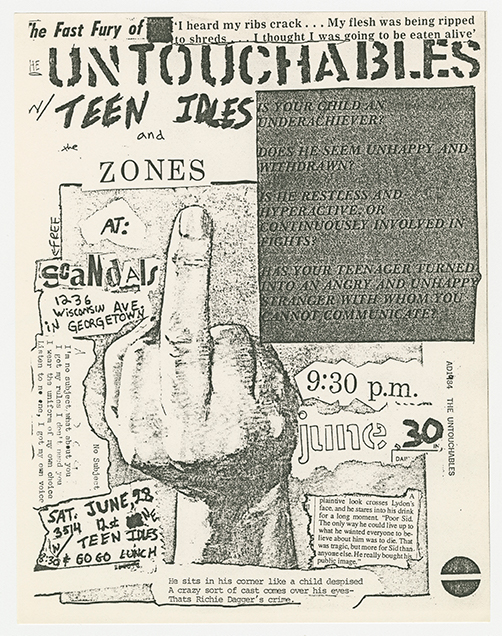
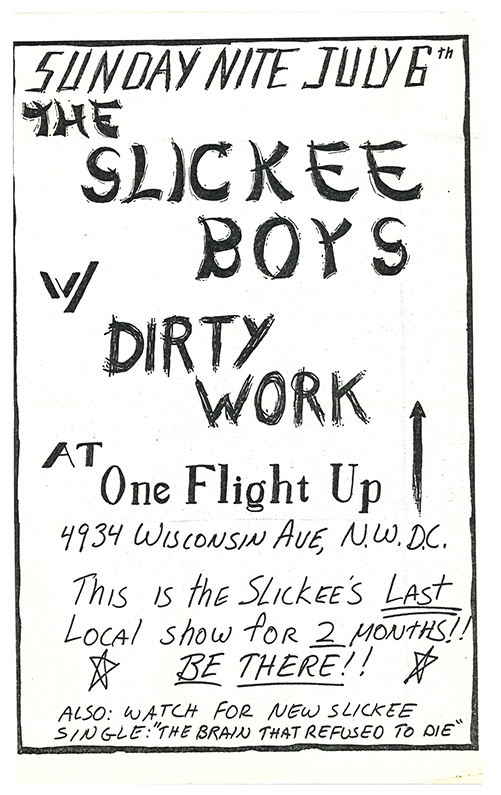
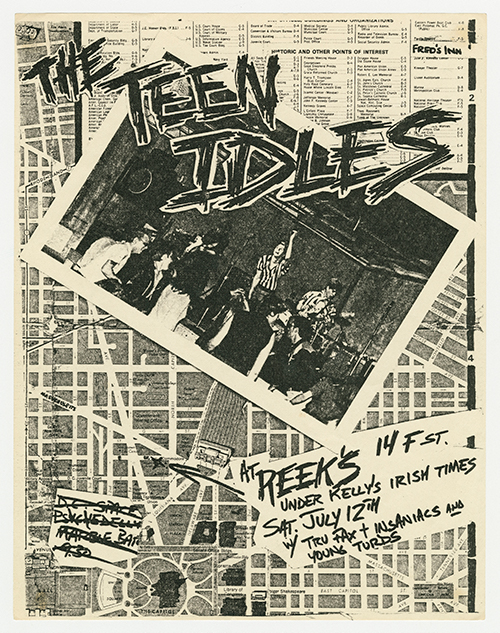
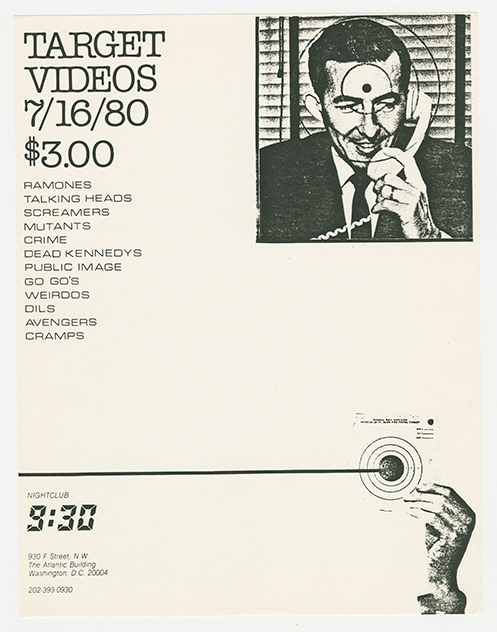
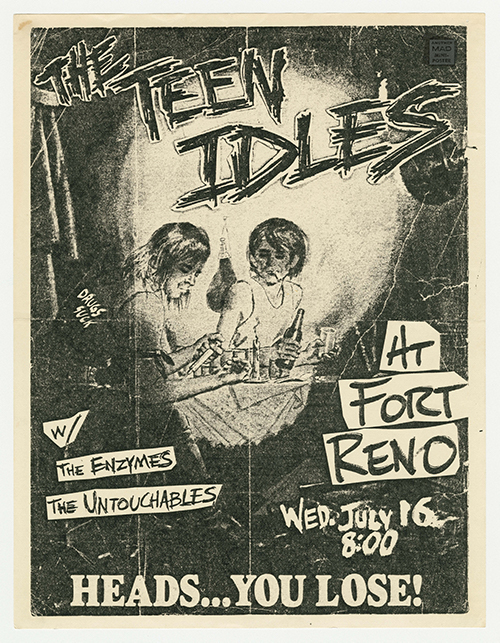
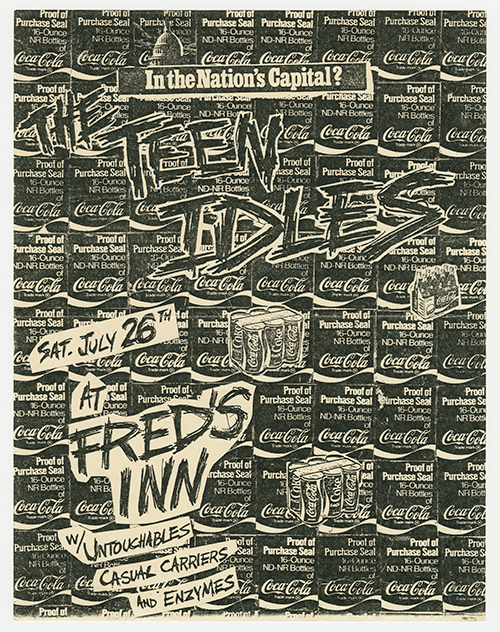
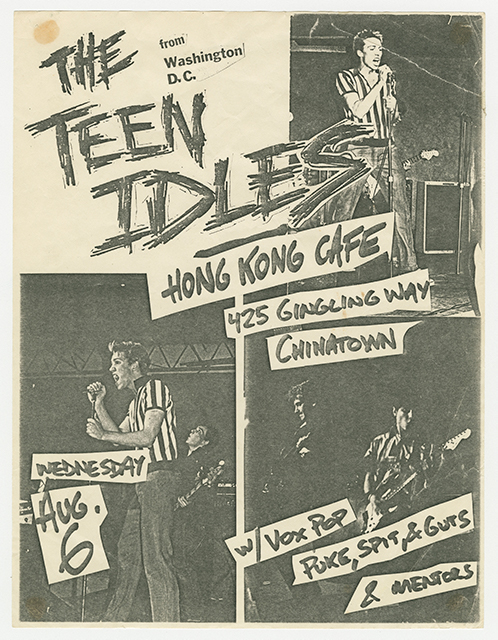
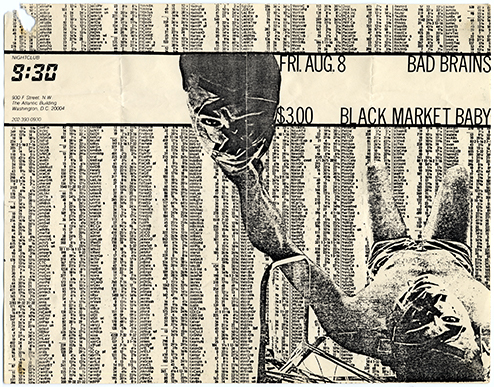
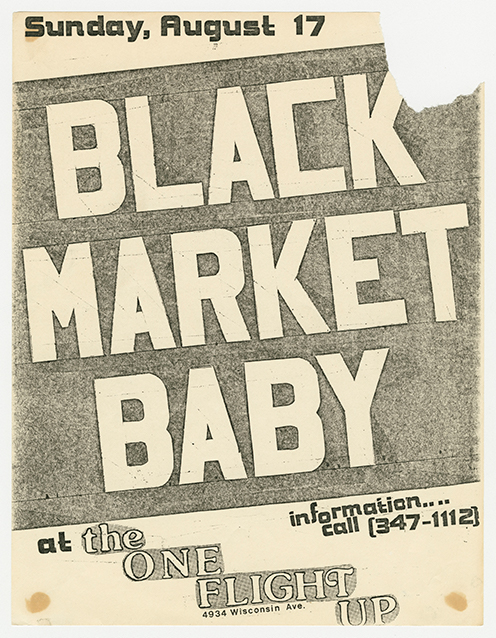
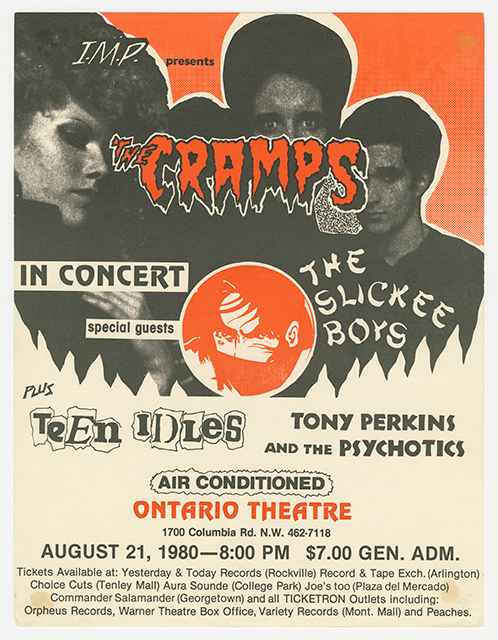
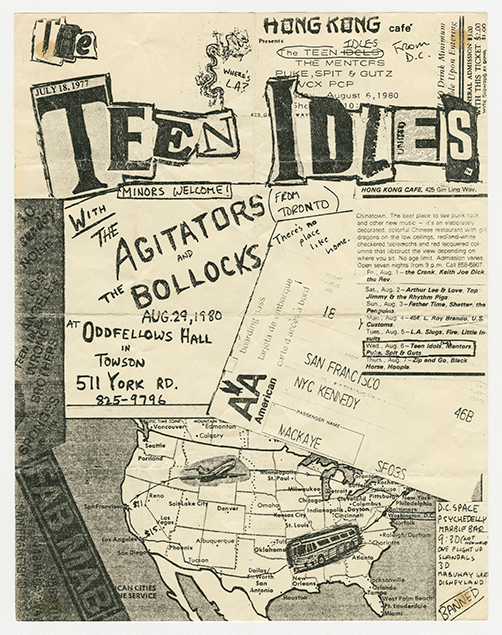
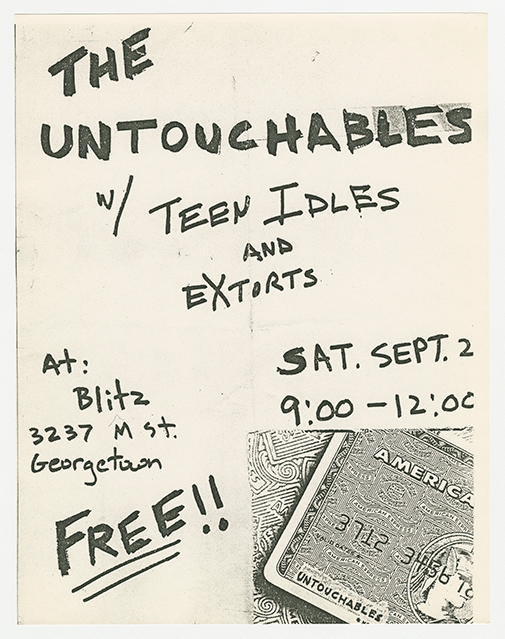
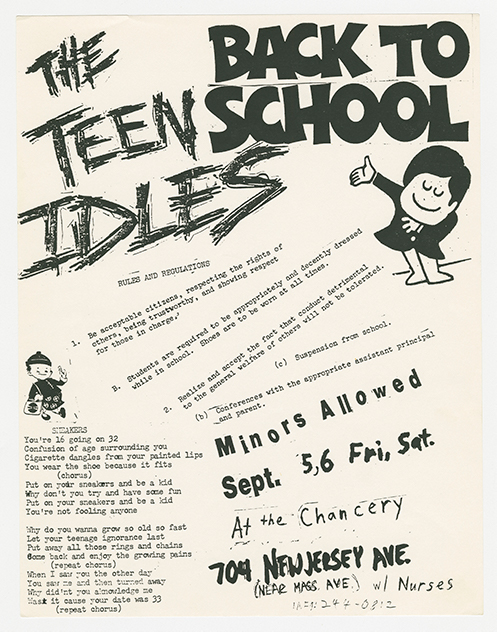
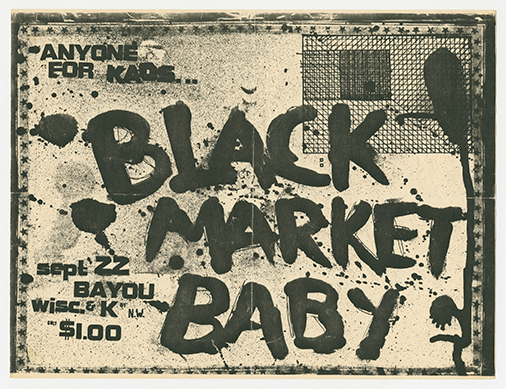
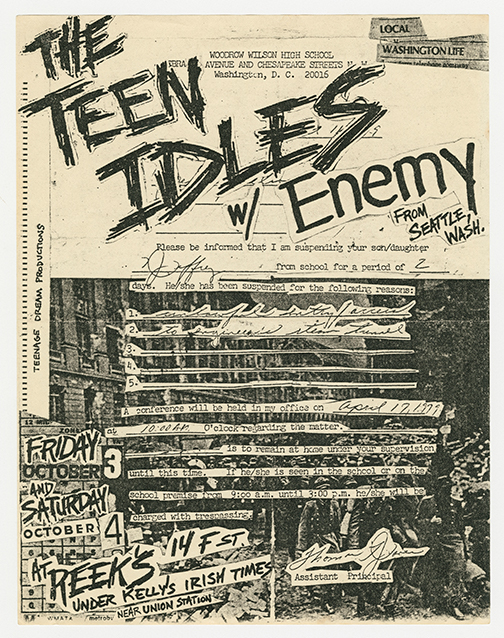
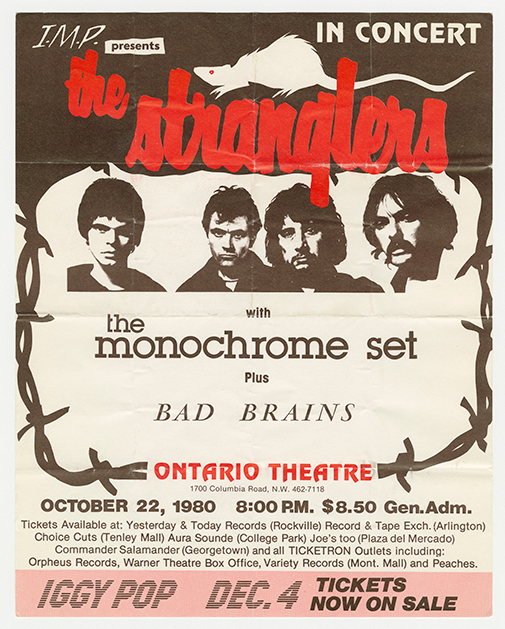
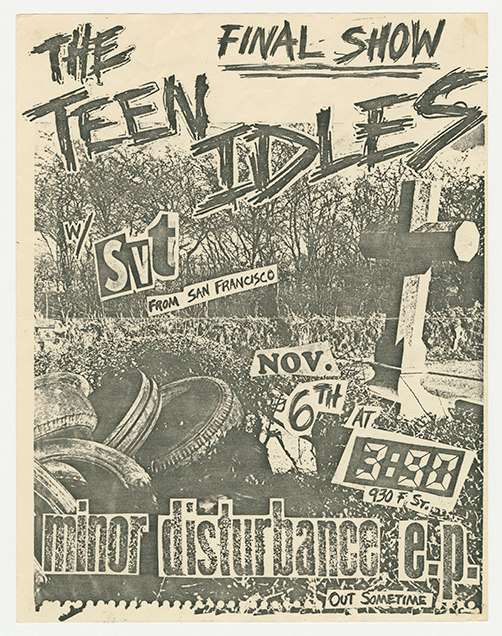
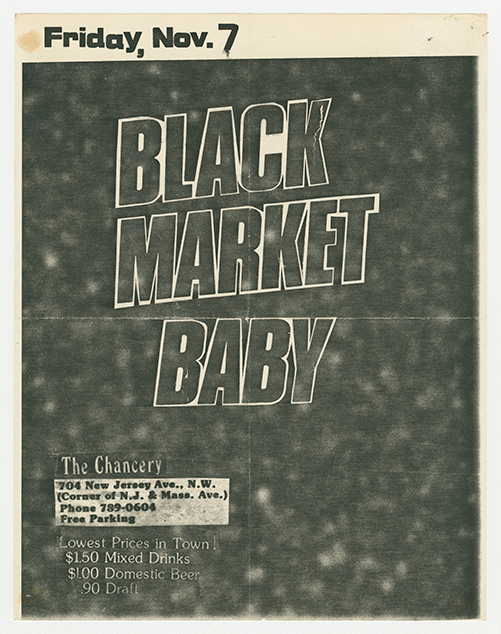
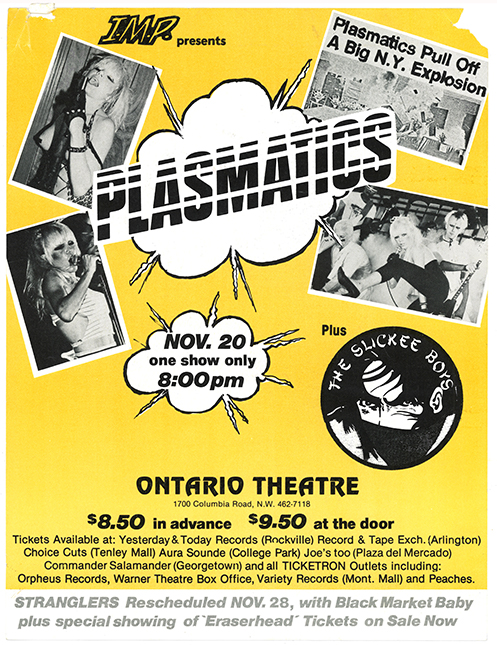
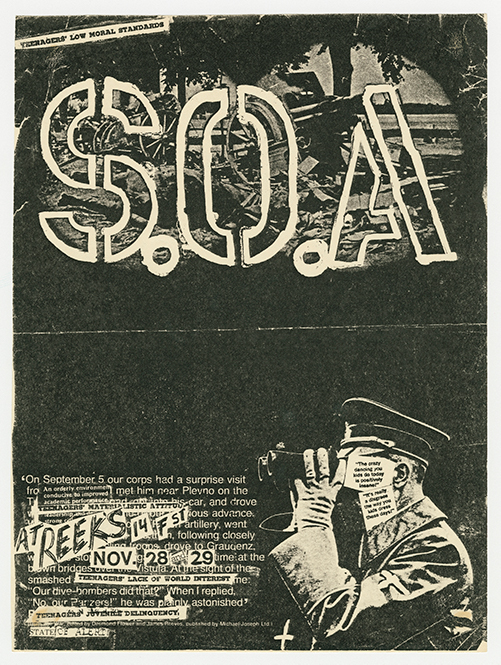
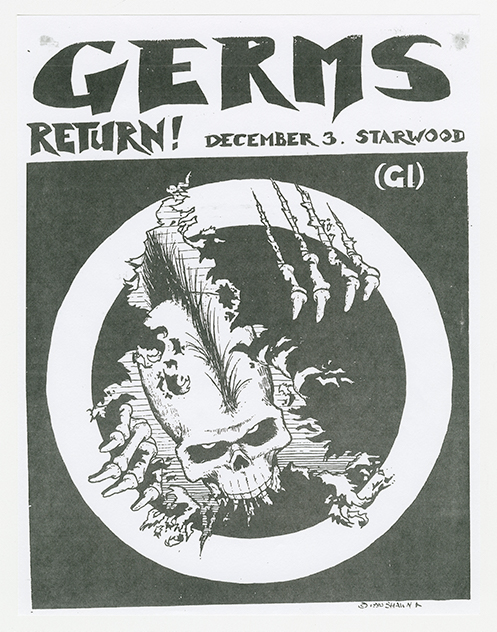
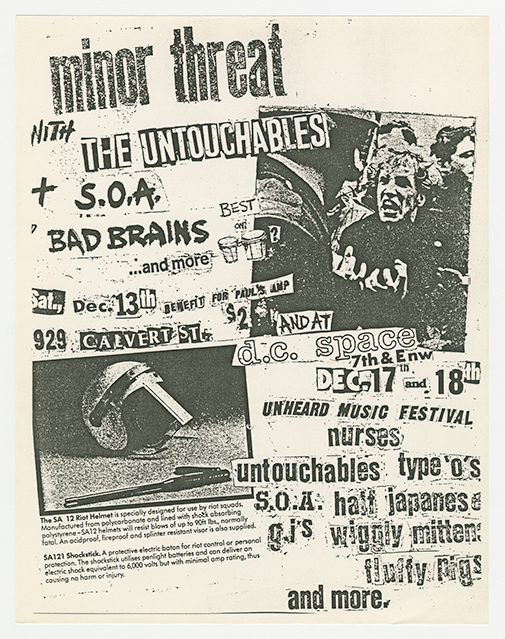
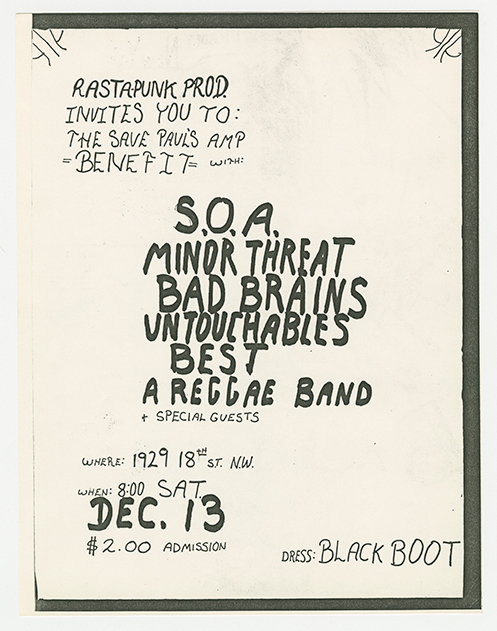
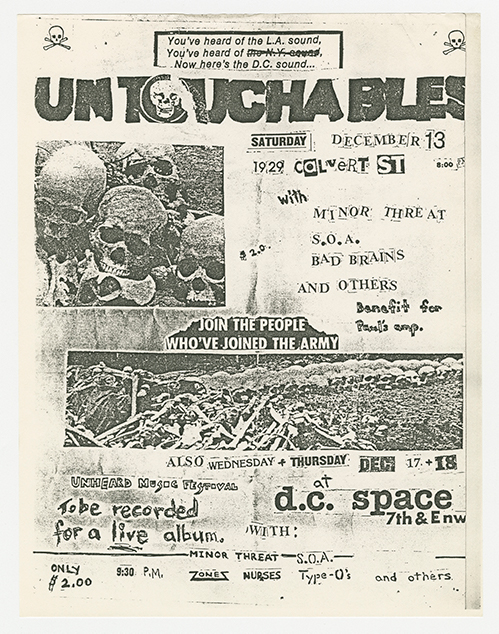
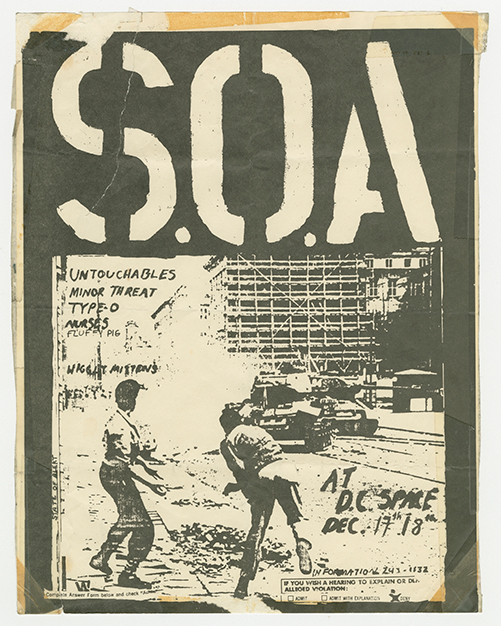
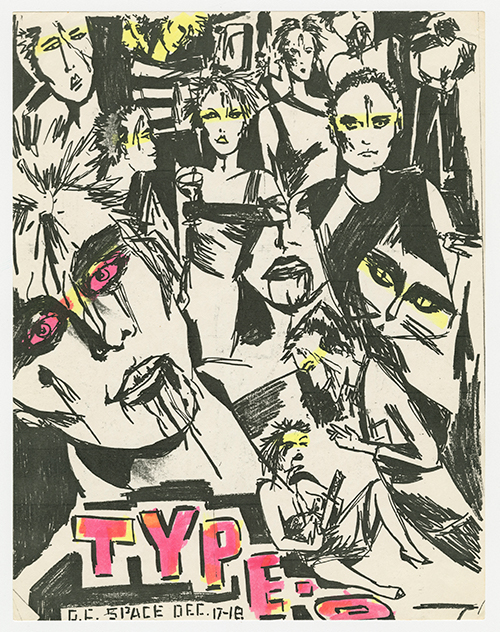
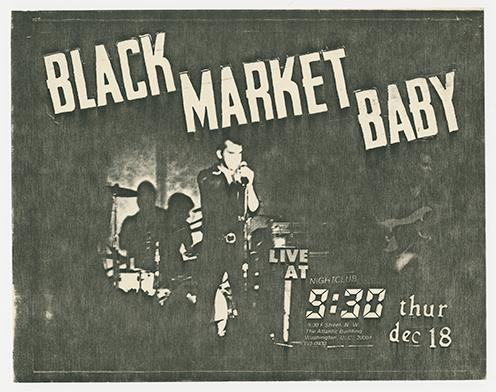
ZINES
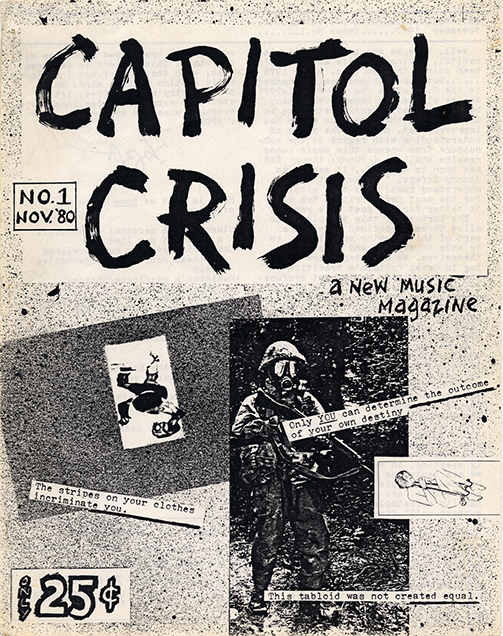
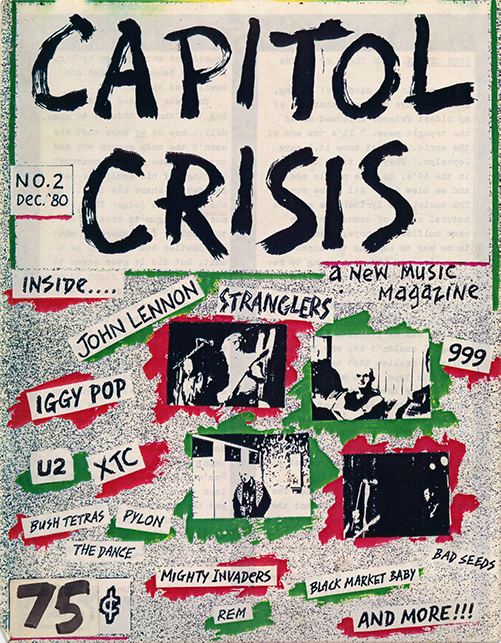
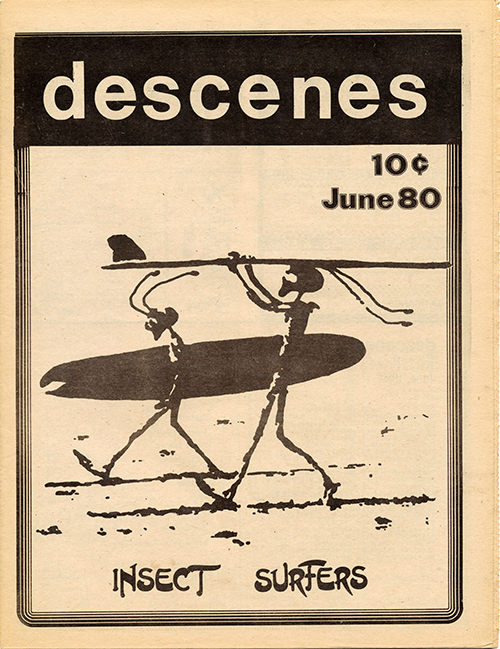
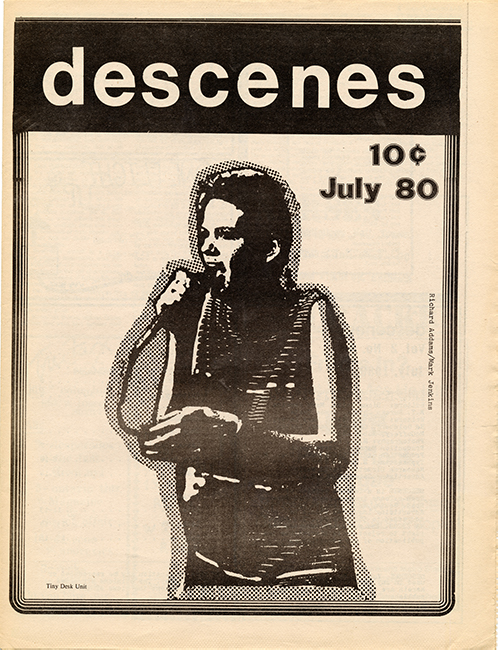
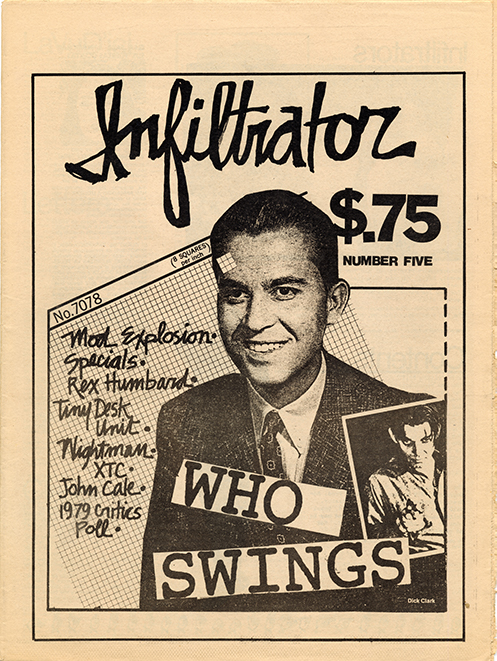
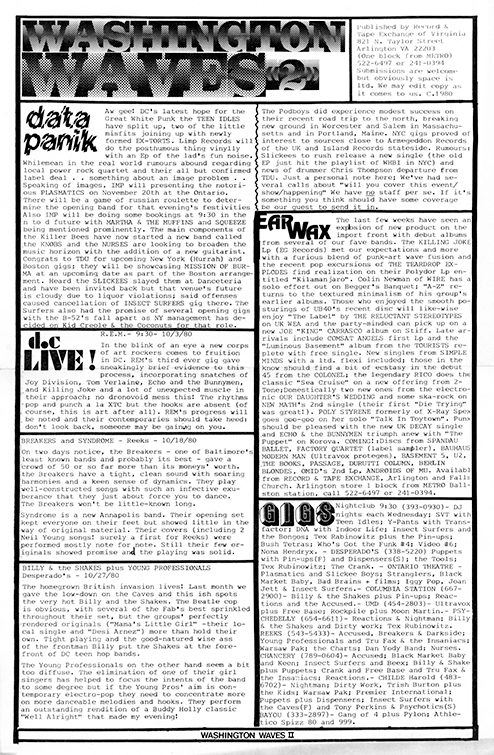
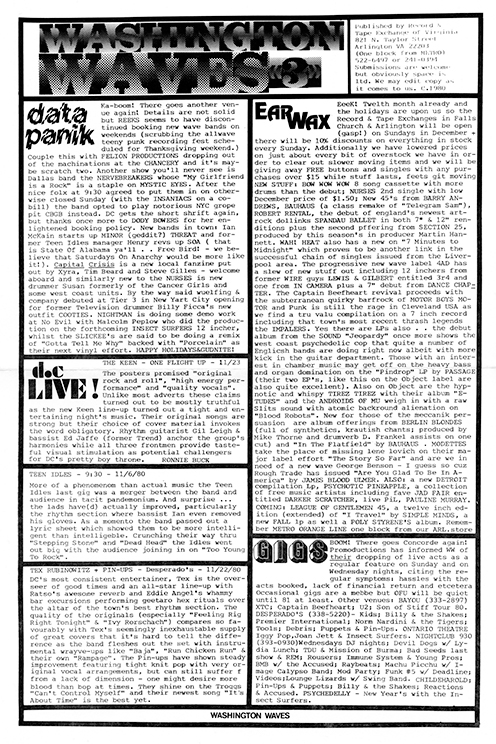
PHOTOS
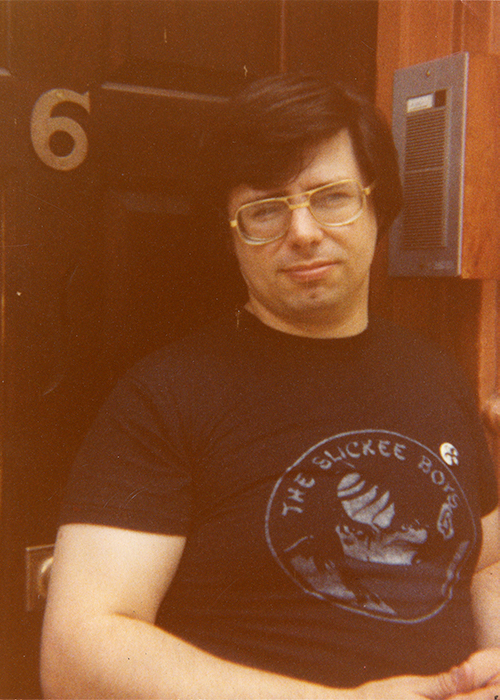
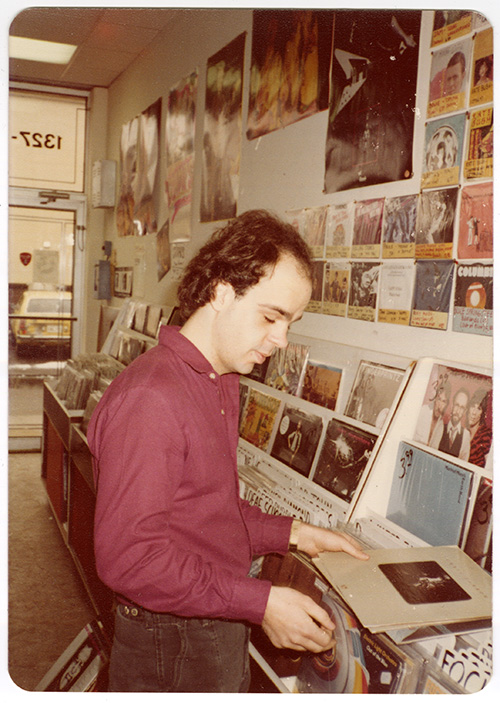
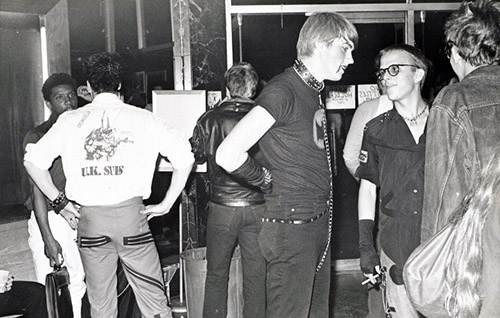
EPHEMERA
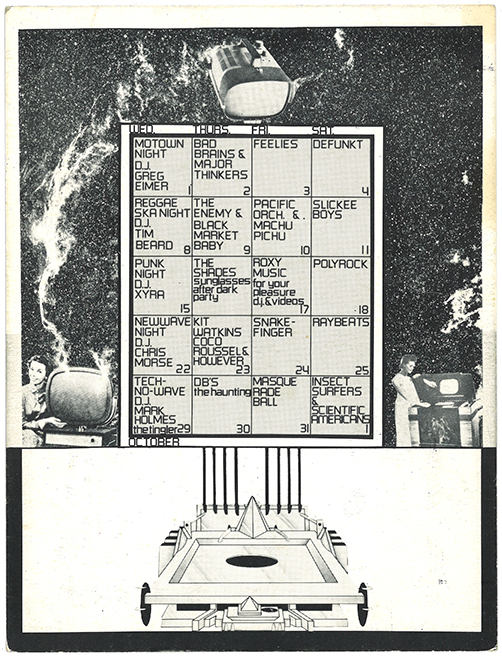
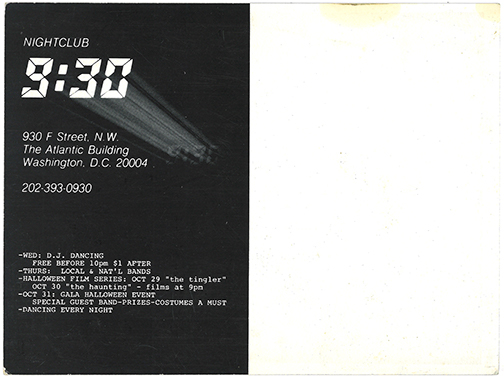
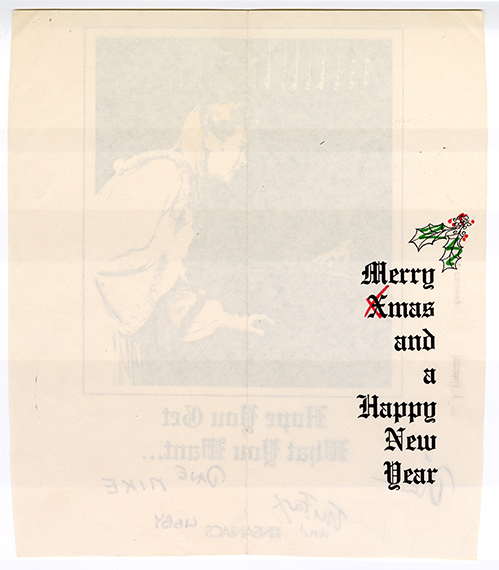
VIDEO
RECORDINGS
Tiny Desk Unit concert recording, Columbia Station, Washington, D.C., January 12, 1980
Tiny Desk Unit, 9:30 Club, Washington, D.C., July 4, 1980
Velvet Monkeys and The Dark recording, 1980-1981
